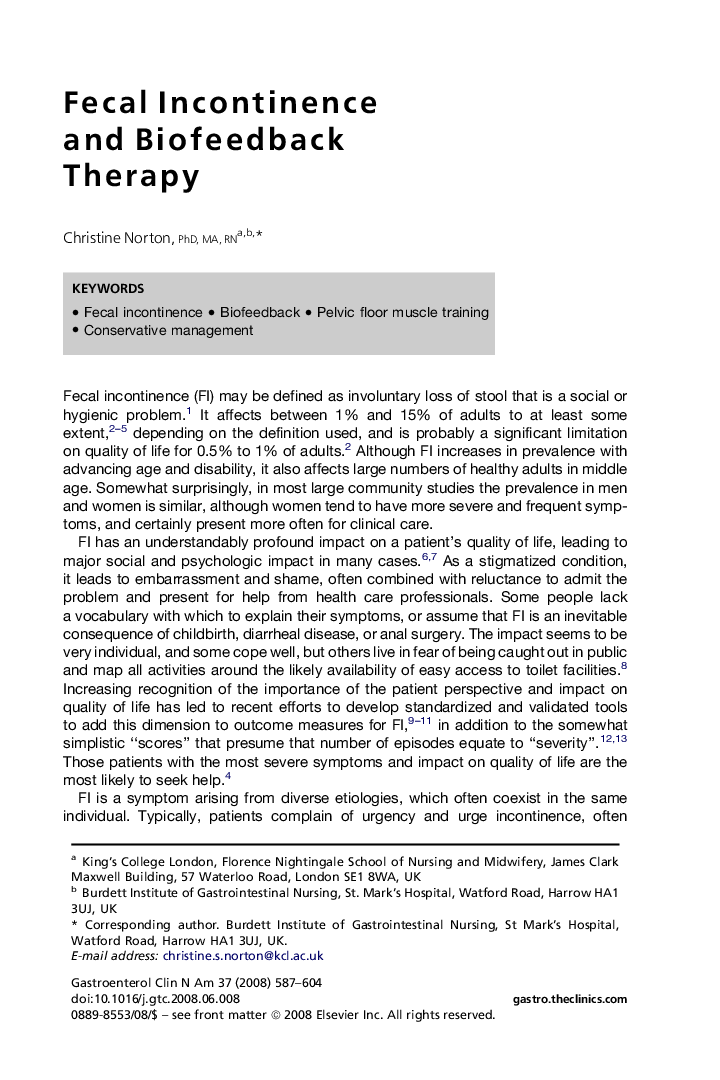| Article ID | Journal | Published Year | Pages | File Type |
|---|---|---|---|---|
| 3301493 | Gastroenterology Clinics of North America | 2008 | 18 Pages |
Abstract
Biofeedback as delivered in most clinical settings in Western medicine has been consistently reported to improve symptoms of fecal incontinence. Closer scrutiny of the elements of the intervention and controlled studies, however, have consistently failed to find any benefit of the biofeedback element of this complex package of care; nor has any superiority been found for one modality over another. There is a need for further well-designed and adequately powered randomized controlled trials. Meanwhile, there can be little doubt that conservative interventions improve many patients with fecal incontinence to the point where most report satisfaction with treatment and do not wish to consider more invasive options, such as surgery.
Related Topics
Health Sciences
Medicine and Dentistry
Gastroenterology
Authors
Christine PhD, MA, RN,
